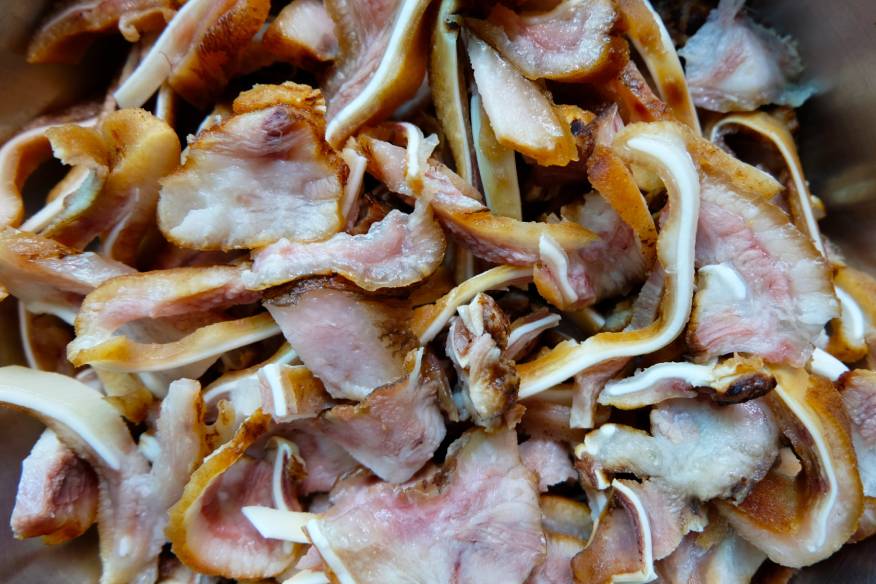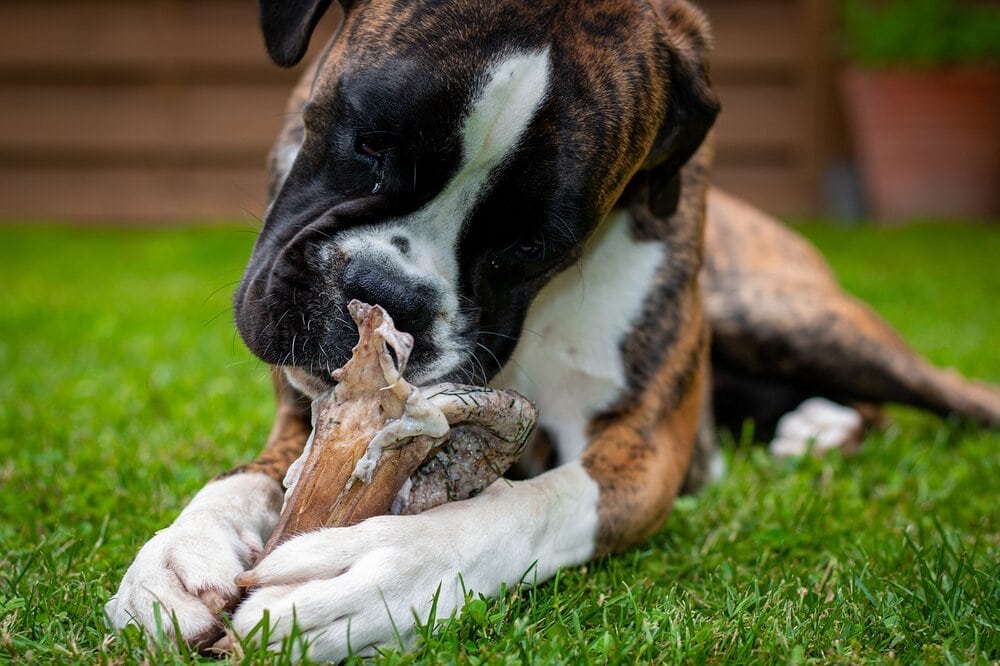Click to Skip Ahead
If your pup goes with you to the pet store, they’ll probably beg you for a pig’s ear treat at some point. Tantalizing to your dog’s curious nose and cheap for your budget, these dehydrated treats are likely to tempt you both. Unfortunately though, just because it’s sold at the store, or even marketed as a natural product, it doesn’t mean it’s healthy for your pup. While pig ears are generally considered safe for dogs, they’re not necessarily healthy, and they do carry risks for dogs and humans alike. Let’s learn more.
What Are Pig Ears?
A pig ear is made from the outer layer of the ear called the pinna. It mostly consists of cartilage and fat. There’s very little muscle, so it’s more of a chew than a treat. Pig ears are processed by rapidly blanching and boiling for 30 seconds to remove the outer hairs. Afterwards, they go through a dehydration process that takes anywhere from a few hours to over a day.
Pig ears are usually marketed as natural products, which they obviously are since they originated from an animal. However, it’s important to note that they may not be completely natural. There are sometimes artificially added ingredients like preservatives or flavors, so be sure to check the label if you’re concerned about synthetic ingredients.

Are Pig Ears Good for Dogs?
In comparison to similar chews, such as rawhide, pig ears are relatively safe. As long as they are only fed occasionally to larger dogs that can handle them, they aren’t likely to cause any issues. In fact, they do provide a few health benefits, including:
- Around 70% of a pig ear consists of protein. The high amount of protein, fat, and calories gives your dog a little nutrition boost, but too much can quickly lead to health problems such as GI upset.
- Pig ears also contain a high amount of iron, a vitamin that’s necessary for your dog to thrive.
- Dental cleaning. While they don’t replace professional dental cleanings, pig ears can keep your dog’s teeth in shape in the months between their vet visits.
Are There Any Health Risks?
Pig ears don’t pose a problem for most large pets. However, they’re generally not recommended for small dogs, puppies, or overweight dogs because they’re a high calorie snack and can be a choking hazard. Dogs are supposed to eat pig ears, but not in huge chunks that can get trapped in their digestive system. That’s why it’s important to always monitor your dog while they’re enjoying a pig ear, or any other type of chew, toy, or treat.
In 2019, the CDC issued a warning advising pet stores to stop selling pig ears completely. A salmonella outbreak that affected humans was linked to these treats, which prompted their decision. However, the outbreak wasn’t linked to a single provider. Despite their efforts, pig ears are still on the shelves. If you decide to give them to your dog, be sure to wash your hands thoroughly after handling them, and don’t let your dog eat them anywhere that’s supposed to be clean, such as your bed. You should also always store your dog’s food away from human food to prevent cross-contamination.

Conclusion
While pig ears are generally considered to be a safe snack, you’re risking salmonella and possible GI obstruction if your dog swallows a huge chunk. Storing them away from human food, as well as washing your hands after handling them, can reduce your risk of contracting salmonella. The same holds for any type of dog food or treats, as salmonella outbreaks have occurred multiple times with different dog food brands. In moderation, pig ears can have moderate health benefits since they’re a high-protein chew that cleans your dog’s teeth. However, small dogs, puppies, or overweight dogs should find an alternative snack because of their higher risk of GI obstruction and the high amount of calories and fat.
Featured Image Credit: Paul Evan Green, Shutterstock










